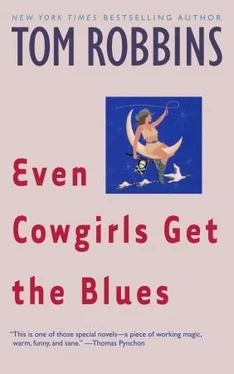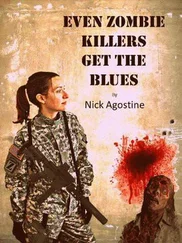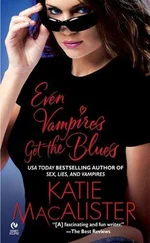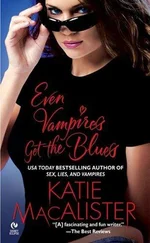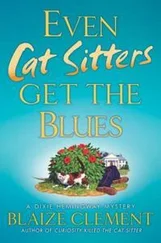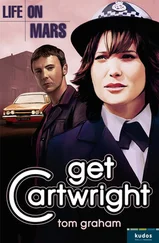The pagan festivals were deeply entrenched in the hearts and minds of the people, and they weren't inclined to give them up. Substitute the cross of guilt and suffering for the sea cart of joy and fecundity? Somehow that didn't seem like an A-1 good deal. They ran it up a flagpole and only a few paranoiacs and uncontrolled spastics saluted it. So the Church shrewdly compromised. It permitted carnival, but conspired to give it Christian significance, gradually succeeding in divorcing it from carefree fertility and associating it instead with self-denial and death (albeit, at three days, the shortest death in history, according to the Guinness Book of World Records — and as Jesus himself once said, “You're either for us or a Guinness").
Reader, the foregoing information concerning carnival is presented here merely as an example of the sort of facts uncovered by Dr. Robbins during his investigation of paganism. If Sissy was content to sit and think about the meaning of her pagan heritage, as described by the Chink, if she was as passive as a baked turkey in her consideration of the pagan potential in modern America (again, as suggested by the Chink), then Dr. Robbins took a more active approach. In the days since he had called in well at the Goldman Clinic, he had engaged in research. Unbiased data about our pagan past was not extensive — our Christian leadership had seen to that — but Dr. Robbins found enough to fascinate him. He had, as a matter of fact, just returned from a profitable morning of scholarship in the public library when his telephone broke a long silence, shrieking from its stationary pedestal as if it thought itself a flashy car being driven at high speeds over back-country roads. Well, even telephones can dream, can't they?
It was Sissy calling. She was upset. In distress. She had just ditched Julian at St. Vincent's Hospital and must see Dr. Robbins at once.
Naturally, Robbins was willing, but he pressed for further details. So Sissy blabbed the whole bloody thing.
“My, my,” said Dr. Robbins. “My oh my. This is bad, this is very bad, but you mustn't think of it as a razor held to the Dali's mustache of your life. Violence stinks, no matter which end of it you're on. But now and then there's nothing left to do but hit the other person over the head with a frying pan. Sometimes people are just begging for that frypan, and if we weaken for a moment and honor their request, we should regard it as impulsive philanthropy, which we aren't in any position to afford, but shouldn't regret it too loudly lest we spoil the purity of the deed.
“Now. I don't really want you coming to my place, in case the cops trace you here. I've got half a kilo of grass stashed here, not to mention a couple of other embarrassing odds and ends. So, tell you what we can do. We'll meet at six this evening in my aunt's house in Passaic, New Jersey. My aunt's away and I have the keys. A safer place you couldn't find. You can get to Passaic, can't you? It's only twenty minutes from Manhattan. Here's my aunt's address.
“Say, Sissy, by the way. Did you know that Nijinsky once played tennis in Passaic, New Jersey? He did. Only time he played tennis in his life. And the only historical event I would like to have filmed. Nijinsky playing tennis in Passaic, New Jersey. Wow! Now that'd be a movie fit to be shown to Jesus, Dionysus and Demeter.”
86.
AFTER TALKING WITH DR. ROBBINS, Sissy felt better — but not much. To the knapsack of her guilt was now added another rock, this one flecked with running-out-on-Julian.
“Maybe it's just that my perspective is wrong,” ventured Sissy. She thought that she would see if there wasn't some positive way to view her actions. It might take time (ah, time!) to arrive at such a vantage point, however, and urgency was running up her leg like a mouse.
After that thumping she'd given the Countess, the authorities would say she was crazy for sure. And one thing she did not want, could not tolerate, was to be committed to the Goldman Clinic or its state-funded equivalent. She felt guilt, she felt sorrow, shame and confusion, but she did not feel that she owed society any accounting for her behavior, as bad as her behavior might have been. Society had never looked upon her with favor. It had been eager to write her off when she was just a little girl. Society might have institutionalized her way back then if she had cooperated. Society had neither liked her nor believed in her, but luckily she had liked herself and believed in herself, and although she recognized that she had floundered in recent years, erred in recent hours, she still liked and believed, and the reckoning she must make was with herself, not with society, especially not with a society that was willing to put a matter as delicate as this in the kitten-crusher hands of the police.
Thus, Sissy Hankshaw Gitche, a self-recognized ongoing system of uncommon abilities and unexpected vices, headed for New Jersey; for options, alternatives, choices. And didn't it feel sweet to be up to her armpits in traffic again, to be dancing cheek to cheek with traffic, to be charming the deadly snake of traffic, to be sticking her thumb into the pie of traffic, Oh she could bouncy-wouncy baby Volkswagens on her knees and suck on Italian racing cars just to freshen her breath, traffic was her element, her medium, the vocabulary from which she snatched the words of her poem, Oh didn't her hands come back to life with a squeal! and wasn't it swee-eet?
So happy was Sissy to pick that conservative blue Econoline van out of the throng on Canal Street and draw it to her as if on a string that she failed to look over its driver until she was seated and he was stomping the gas-feed. It was with a sense of disgust at her own failure that she scrutinized his sweaty brow, his smug, hot leer, his eyes so starved for erogenous scenery that they did not register her thumbs. Her heart sank another twenty fathoms when she saw his gun and his knife.
87.
LAWS, it is said, are for protection of the people. It's unfortunate that there are no statistics on the number of lives that are clobbered yearly as a result of laws: outmoded laws; laws that found their way onto the books as a result of ignorance, hysteria or political haymaking; antilife laws; biased laws; laws that pretend that reality is fixed and nature is definable; laws that deny people the right to refuse protection. A survey such as that could keep a dozen dull sociologists out of mischief for months. (Ford Foundation, are you reading this book?)
The first laws prohibiting hitchhiking were enacted in New Jersey in the 1920s to keep city-bred flapper freeloaders away from selected resorts and rural paradises. New Jersey remains one of two states (Hawaii, the other) where hitchhiking is both completely illegal and the law strictly enforced. It was because of the Jersey ban, and the toughness of its state patrol, that Sissy had selected the blue van. She was on Canal Street, near the entrance to the West Side Highway. She had hoped to get a ride up the West Side Highway and over the George Washington Bridge, putting her as close as possible to Passaic, keeping her hitching — as much as she capital-A Adored it! — to a minimum once in Jersey. The blue van had Jersey plates. That's why she chose it.
It had been a mutual choice, for the blue van's driver had spotted Sissy a block away and had manuevered into the curb lane. He had started talking even before he braked, and once Sissy was aboard he was rapping away at such an amphetamine clip that had he died at that moment the undertaker would have had to beat his tongue to death with a stick.
He was also unzipping his pants.
“I'm going to give it to you like you've never had it before. Oh, you didn't know it could be this good. You're gonna like it. You're gonna like it. You're gonna like it so good. You're gonna love it so much you're gonna cry. You're gonna cry and cry. Do you like to cry? Do you like it when it hurts a little bit? Whatever happens to you, it'll be worth it. The way I'm gonna give it to you, it'll be worth anything. Everything. Go ahead and cry if you want to. I like it when women cry. It means they appreciate me.” Etc., etc.
Читать дальше
